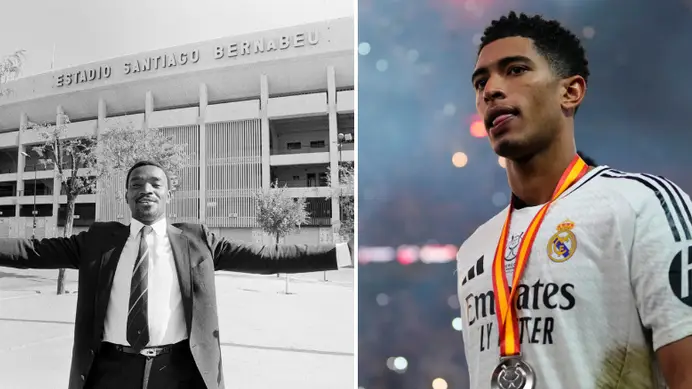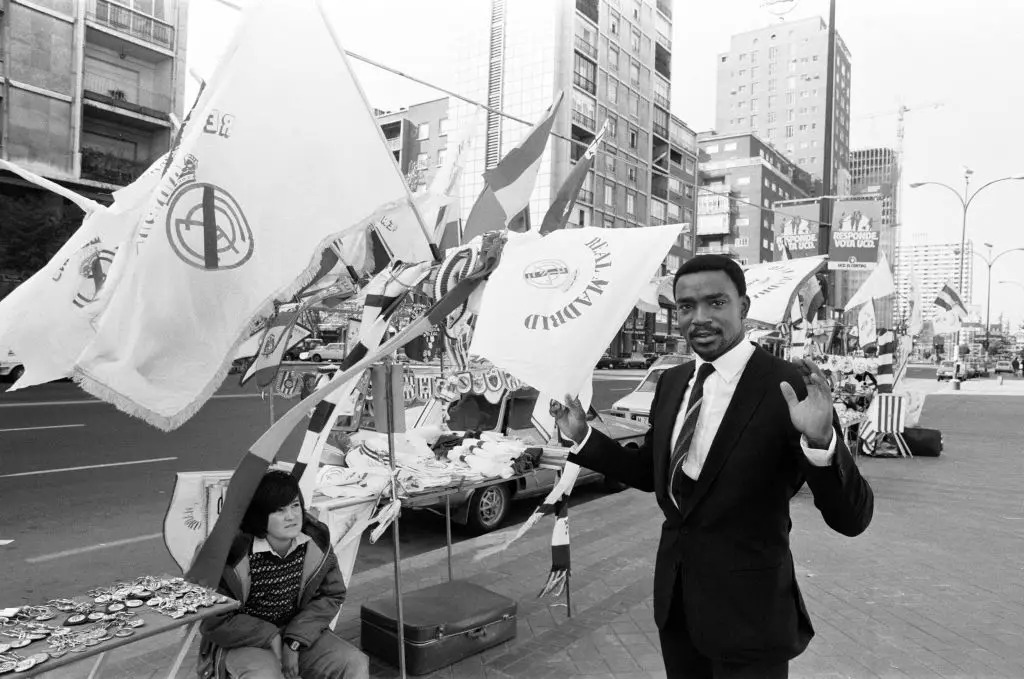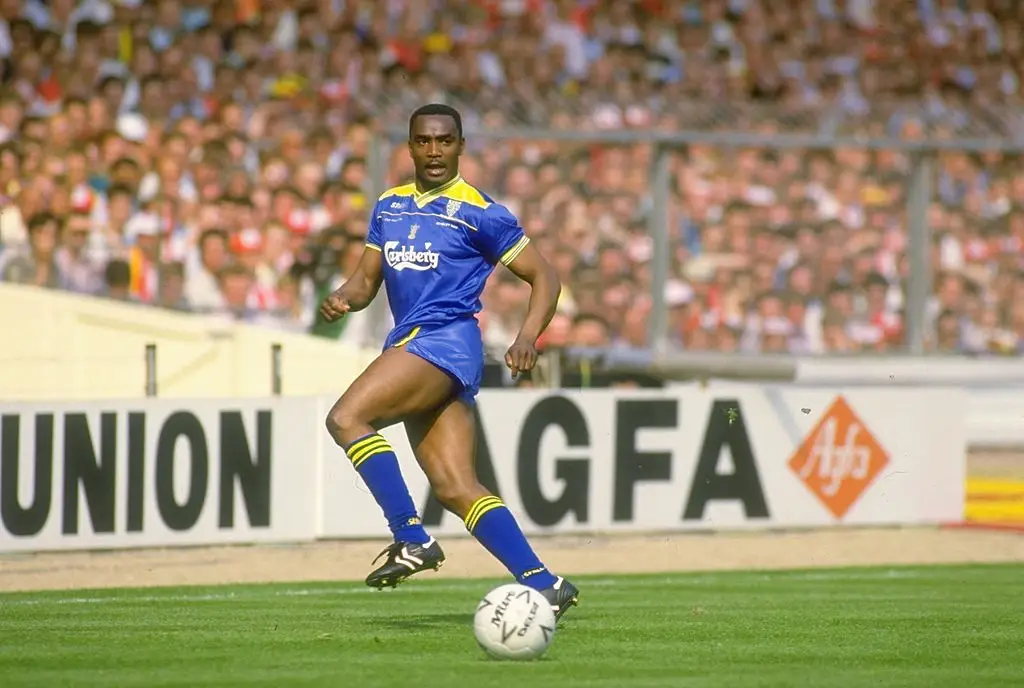
Laurie Cunningham was a trailblazer for British football but his career ultimately ended in tragedy.
Cunningham initially signed a schoolboy contract at Arsenal in 1970 but was released by the north London side.
But just two years later, he secured a spot at second-tier Leyton Orient, before making his debut for the club in 1974.
His progressive and exciting style saw the left winger secure a move to West Brom where he remained for three years under the guidance of former Manchester United boss Ron Atkinson.
Advert
Then Real Madrid came calling. And even back then, this usually meant a player had very little to think about before signing for Los Blancos.
Madrid paid a fee of £950,000 for his services - a club record for both the Spanish giants and West Brom at the time.
Back then, Madrid legend Alfredo Di Stefano was taken aback by the amount the club paid for Cunningham.
"He must be the best attacker in the world considering how much Madrid have paid for him," Alfredo Di Stéfano said [quote via ESPN].
But his first season could hardly have gone better. Cunningham won the league and cup double in his first campaign in the Spanish capital, with arguably his defining moment coming during ‘El Clasico’ in February 1980.

Although the game ended in a 2-0 away win for Madrid at the Camp Nou, Barcelona’s fans applauded his excellent performance.
Former Barca defender Migueli later explained how “he drove us crazy with his dribbling” and "his speed”.
And the Spanish newspaper Marca described how “Cunningham had Barcelona’s fans in his pocket”.
The winger was widely regarded as a top-class player with his former teammate and 2010 World Cup-winning manager Vincente Del Bosque describing him as "the Cristiano Ronaldo of his era" according to BBC Sport.
He achieved several historic feats becoming the first British player to represent Madrid and the first black player to play for England Under-21s before securing six senior caps in all.
However, Cunningham's career stagnated due to injuries and the murder of his sister-in-law “left him depressed” according to Real Madrid’s official website.
In 1983, he returned to England, joining Manchester United on loan before a spell at Spanish outfit Sporting Gijon.
He then penned a permanent deal at Marseille in 1984 before moving back to England when he joined Leicester City the following year.
But Cunningham returned to the Spanish capital, this time with Rayo Vallecano in 1986. A brief spell at the Belgian outfit Charleroi followed before once again returning to his homeland, winning the 1987/88 FA Cup with the Wimbledon team dubbed ‘The Crazy Gang’.

That summer, he re-signed for Vallecano. And despite scoring a promotion-clinching goal in 1989, by this time, Cunningham’s life was turbulent, and two relationships resulted in two children. The BBC reported that a string of failed investments and longstanding problems with a property contributed to his fading career.
Then on July 15, 1989, Cunningham was driving down a motorway on the outskirts of Madrid after a night at a party.
Cunningham, accompanied by another man “approached a roundabout before accelerating past a slower car”. But he failed to see another car with a flat tyre before “losing control”.
The car reportedly “flipped several times” and “hit a lamppost”. He was taken to hospital but was pronounced dead shortly after. He was just 33 years old.
A toxicology report later explained how Cunningham was three times the drink-driving limit. And despite the tragic end to his life, the Londoner will always be remembered for his skilful play and breaking boundaries after suffering racist abuse from fans during his time in England.
His son, Sergio, recently discussed the topic after current Madrid winger Vinicius Junior was subject to racist abuse while playing for Madrid.
Sergio explained how his family were subject to attacks on their home and received death threats when they lived in England.
“Seeing a black man in an England shirt was the biggest insult in the world," he told SER.
“My father was born in the 70s in the United Kingdom at a time when racism was a reflection of society. You would walk around England and see signs prohibiting the entry of Irish, blacks and dogs. Imagine when my father wore the shirt of the English team.
“When my father came to Real Madrid in 1979 he did not feel that racism in Spain. I’m sure he’d be surprised that we’re still talking about these issues.”
Topics: Real Madrid, El Clasico, Cristiano Ronaldo, Manchester United, FA Cup, Champions League
